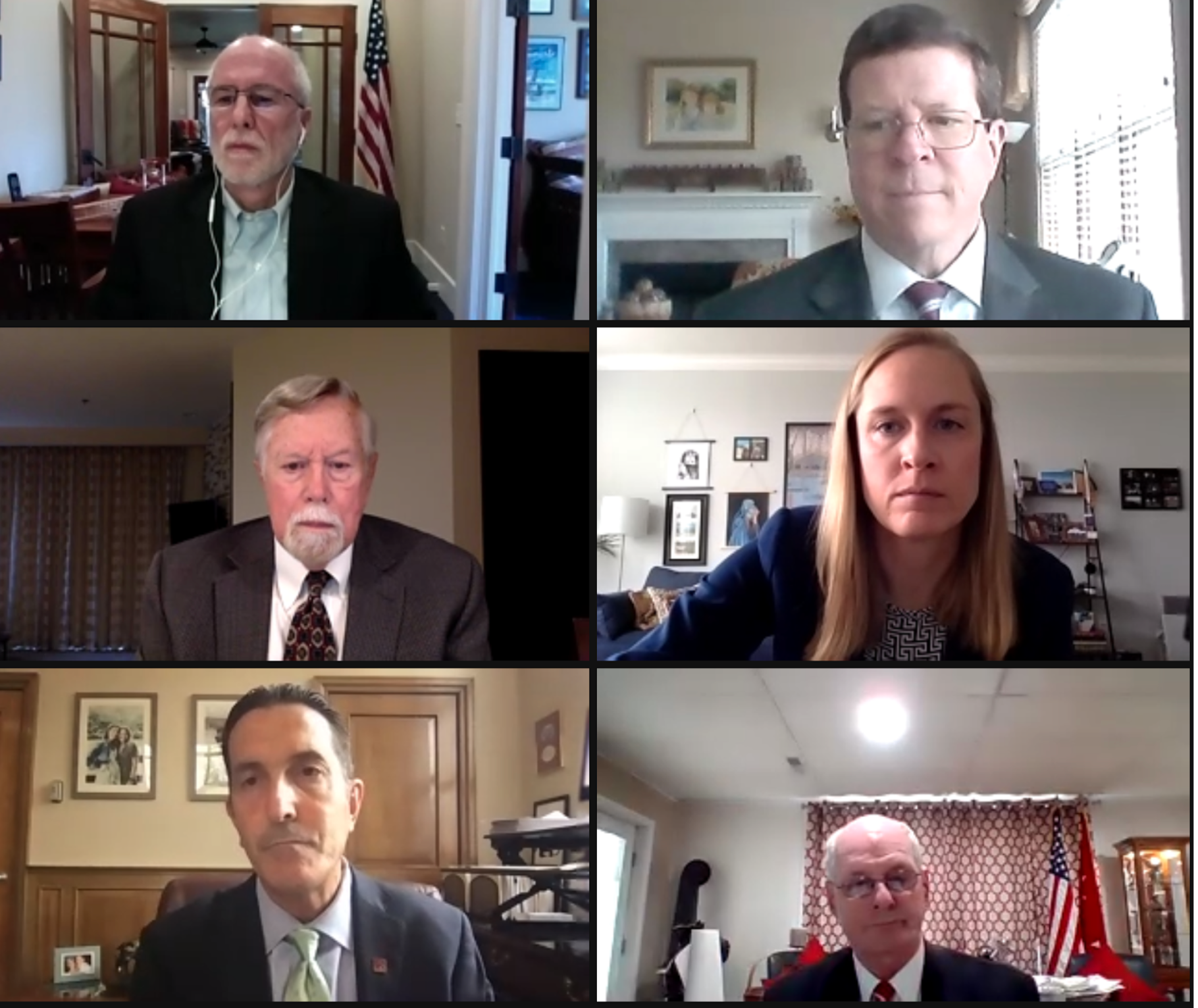
Event Recap: How Climate Change Impacts National Security
On April 12th, the American Security Project (ASP) and the University of Charleston hosted an event on the national security implications of climate change. Panelists included Major General Dr. John Barnette, USA (ret.), Dr. George Walker, Rear Admiral Michael White, USN (ret.), and Major General Rick Devereaux, USAF (ret.). University of Charleston President Dr. Marty Roth moderated the discussion, and ASP Climate and Energy Director Alexandra Hackbarth gave opening remarks. The event also included statements by West Virginia Senators Joe Manchin (D-W.Va.) and Shelley Moore Capito (R-W.Va.).
Hackbarth opened the conversation by laying out the effects of climate change on national security. First-order effects include extreme weather events like wildfires, droughts and hurricanes that threaten US military installations and infrastructure. Additionally, second-order effects such as international instability are exacerbated by climate effects like drought and national disaster. Climate change also has implications for strategic competition in climate leadership and clean energy as well as great power competition in the Arctic.
Senator Manchin (D-W.Va) expressed his commitment to finding bipartisan solutions to address the widespread effects of climate change at home and around the world, while emphasizing the link between energy independence, reliability, and economic prosperity. Senator Moore Capito’s remarks focused on the link between environmental policy and national security with an emphasis on decreasing the reliance of the United States and its allies on supply chains controlled by strategic competitors.
Major General Dr. Barnette, who served in the West Virginia National Guard, centered his comments on ways to analyze climate change and national security interests through a complex lens that accounts for the way small changes can create large disruptions. For example, rising temperatures and drought — direct consequences of climate change — can lead to indirect consequences like water crises. These indirect consequences can contribute to heightened social and political tensions as groups position for scarce water resources. Heightened tensions may cause instability that threatens national security interests. These threats have implications for the Department of Defense (DOD), including developing and maintaining a force capable of responding to new and complex threats. He concluded by explaining leadership qualities necessary to respond to complex threats: leaders should be relational, adaptable, and tolerant of ambiguity when exercising judgement and making critical decisions.
Dr. George Walker, a retired scientist who worked on quality control of military technology, spoke about the increased strain on high-tech component performance in extreme weather conditions. For this reason, climate change could create increased vulnerabilities for military technology. He also spoke to potential communication and operational challenges caused by extreme weather conditions.
Rear Admiral White, a doctoral student at the University of Charleston, underscored the threat that increased flooding and temperatures pose to military readiness. Increased need for international humanitarian missions caused by natural disasters can also strain military readiness. Finally, he spoke about rising numbers of displaced persons due to climate disasters, which can also create tensions among nations that are destinations for refugees.
Finally, Major General Devereaux, highlighted the national security imperative of moving the DOD away from fossil fuels and reducing climate impacts. He noted the military is leading the charge toward renewable technology because reducing the military’s dependence on fossil fuels will enhance capability and operational effectiveness. Decreasing the military’s reliance on fossil fuels will reduce the need to ensure control of natural gas lines and decrease dependence on fuel from other countries. Renewable energy also has the potential to be less logistically challenging to obtain and transport than oil and natural gas. To illustrate this point, Devereaux noted the number of American casualties in Iraq and Afghanistan associated with fuel convoys. Finally, he seconded the link between renewable energy leadership and promoting US interests vis-a-vis China, as well as creating US jobs.
Watch the full recording here:
Additional Resources from the American Security Project:
Perspective – National Security Implications of Climate Change in Florida
Climate & Energy in the Interim National Security Strategy Guidance
Climate Stress in the Shadows of India’s Farmer Protests





